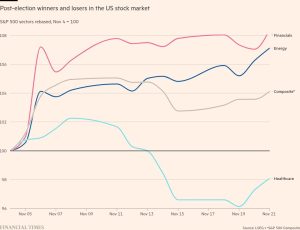Andrea Orcel, Commerzbank and the redemption trade
Unlock the Editor’s Digest for free
Roula Khalaf, Editor of the FT, selects her favourite stories in this weekly newsletter.
It is only fitting, 17 years after the last significant cross-border European banking deal, that the brains behind that transaction should be driving what may turn out to be the next one.
Back in 2007, Andrea Orcel was a financial institutions banker at Merrill Lynch: the adviser that masterminded the complex acquisition and break-up of Dutch lender ABN Amro by the impossibly ambitious Royal Bank of Scotland.
Today, having graduated from CEO adviser to bank CEO himself, Orcel appears to be positioning himself for a similarly bold cross-border deal — an acquisition by UniCredit, the Italian bank he helms, of German rival Commerzbank.
Last week, it emerged that UniCredit had acquired a 9 per cent stake in Germany’s second-biggest listed bank, after a two-part manoeuvre — a secretive build-up of a partly derivative-based interest, plus a more transparent acquisition of a stake sold off by the German government. (The state still owns 12 per cent of Commerzbank, a relic of a 2008 bailout.) On Monday, Unicredit revealed it had raised that stake to 21 per cent.
On the face of it, the plan has backfired. Politicians of all stripes have rushed to defend Commerzbank’s honour, and senior figures within an apparently nonplussed German government have spoken of UniCredit’s “unfriendly” act. The full-blown merger that Orcel has made no secret of wanting looks out of the question.
But that would be to underestimate a banker who is known as much for his wily charm as for his technocratic skills and forceful determination. He has professed himself “very patient” and has clear “optionality” as bankers like to say.
At the very least, the Italian bank has a chunky stake in a competitor that has the potential to increase in value. UniCredit’s own position has been strengthened considerably thanks to a 65 per cent increase in its share price over the past year, on the back of stronger profits. Orcel may apply pressure for a similar efficiency drive at Commerzbank.
A halfway house between the status quo and a full-blown UniCredit-Commerzbank merger would be the option of selling UniCredit’s current German offshoot, HVB, to Commerzbank. That could be more politically palatable, preserving Commerzbank as a quoted entity with UniCredit as a dominant investor.
At the most ambitious end of the spectrum, Orcel would not only pull off a full-blown merger, but would then follow up with a second-stage transaction with another European institution, perhaps one with a bigger investment bank, like Barclays.
Seeing Commerzbank as a staging post helps explain why anyone, let alone a supposedly razor-sharp banker, would want to own a group that has long seemed destined to underperform.
When I was the Financial Times’ correspondent in Frankfurt, and first arrived in the city 20-plus years ago, Commerzbank clearly had pretensions to grandeur. They were most obvious in the 259-metre Norman Foster-designed tower it had commissioned as its headquarters — at the time the tallest building in Europe — and in the investment banking division that was run like a hedge fund and produced comically volatile earnings. Billion-euro profits one quarter, billion-euro losses the next. It was nicknamed Comedybank, even before its disastrous takeovers of local rival Dresdner Bank and property lender Eurohypo.
After periods of near-collapse and vulture-fund attack, it now finally appears plausibly attractive, with a near 9 per cent return on equity nudging the European average.
UniCredit, which is currently twice as profitable, has earned the acquisition currency to bid. Its stock is trading at around 100 per cent of the book value of its net assets, far ahead of the 60 per cent or so that Commerzbank commands, even after the excitement of a potential offer.
Also appealing for UniCredit is that it is a deal that would bolster its market share in Europe’s biggest economy and provide diversification away from its Italian homeland — thus diluting the premium that attaches to the bank’s funding costs thanks to Italy’s lower credit rating.
For all the likely stakeholder hurdles in Germany — notably from politicians and unions — Orcel may be able to garner some support by pushing the line that consolidating the notoriously fragmented and inefficient German banking market could help the country economically. There is also likely to be support for Orcel’s ambitions among European policymakers. The European Central Bank, which would have to sign off on a deal, has been calling for years for cross-border mergers that would bolster a single market for finance and help close the gap with the Wall Street giants that currently dominate Europe’s investment banking market.
If a deal does come to pass, Orcel may not welcome mention of the parallels with 2007 and RBS-ABN: that deal created the world’s biggest bank — before its near-collapse and humiliating rescue by the British government. “It was a moment of madness for everyone,” says one of Orcel’s former colleagues. Maybe UniCredit-Commerzbank could be the redemption trade.
#Andrea #Orcel #Commerzbank #redemption #trade





